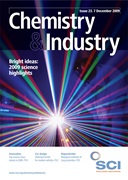A promising new treatment for premature ejaculation with a potential multi-billion dollar market has successfully completed Phase 3 studies.
More than 500 men participated in the two clinical trials in Europe and the US, which found that those using PSD502 took six times as long to ejaculate, compared with those taking placebo, and partner satisfaction was also found to be considerably greater, according to Alexander Yule, business development associate at Plethora Solutions. Plethora has licensed the drug to Sciele Pharma, which will market it in the US.
The potential market for a new treatment for premature ejaculation is thought to be considerable. Up to 30% of men in Europe and the US suffer from the disorder, according to Plethora. It is the most commonly reported form of male sexual dysfunction, being twice as prevalent as erectile dysfunction, the global drug treatment market for which is around $3bn, says Yule.
Nevertheless, no prescription drugs are approved in the US for premature ejaculation and only one is approved in Europe – Johnson & Johnson’s shortacting antidepressant Priligy (dapoxetine). The condition is commonly treated ‘off-label’ with other antidepressants. There are also a variety of ‘delay spray’ overthe- counter products containing local anaesthetics, but their use is commonly associated with loss of sensation, inconsistent dosing and transfer to the partner and associated numbing. And anaesthetic creams have the same problems and are slow to act, says Yule.
PSD502 is a rapidly absorbed formulation of two marketed anaesthetics, lidocaine and prilocaine, which is dispensed by a metereddose aerosol. The drug is applied locally to the glans when needed and is effective in five minutes, according to Plethora. PSD502 was expressly designed to give a controlled degree of penile desensitisation, precise dosing and no transfer to the partner, says Yule. Moreover, there have been no indications of any local or systemic adverse events from repeated use to date. And, while less than 3% of men participating in the clinical studies experienced occasional mild penile numbing, it was not enough for them to discontinue treatment.
‘Unmet market needs, a significant number of potential patients and lack of competition boost long term prospects for business making within the sector,’ says Denise Claux, research analyst for healthcare & pharma practice at IHS Global Insight. She says PSD502 looks like one of the most promising drugs in development for the disorder.
However, sexual dysfunction treatments, such as Pfizer’s Viagra, have commonly been affected by counterfeiting problems. ‘Firms looking to enter into this sector are expected to pay special attention to this issue and incorporate a series of preventive measures to avoid future losses,’ says Claud, who points to the serial number on every packet of Priligy sold in Italy.





